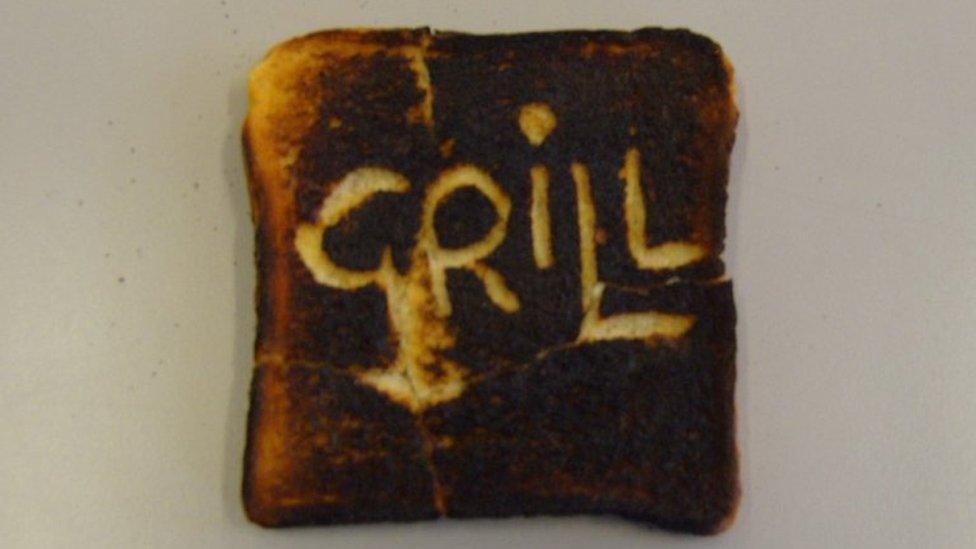Bristol Old Vic theatre token could still be valid after 257 years
- Published
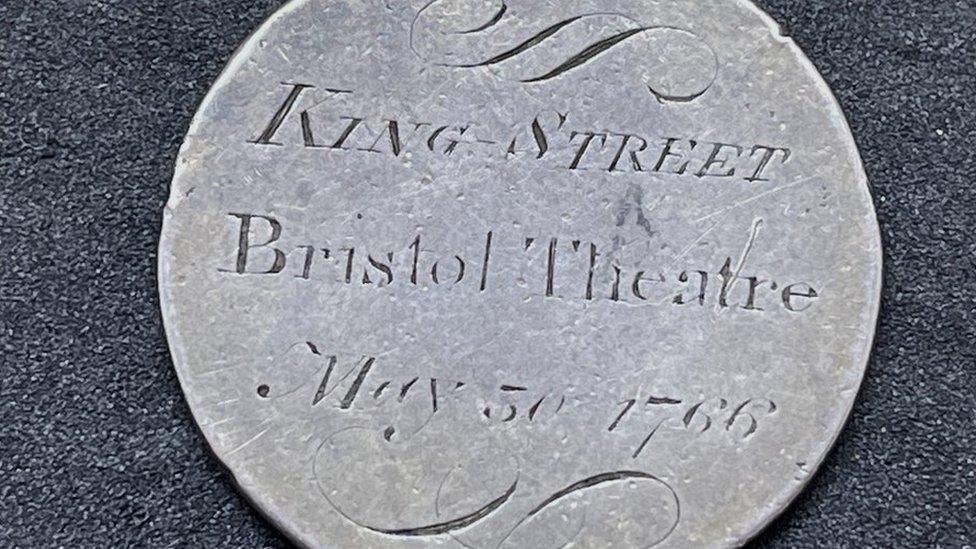
The theatre on King Street was opened in 1766
A theatre token dated to 1766 and which allows the owner unlimited access to shows could still be valid after it is auctioned off later.
Only 50 tokens were minted for the original shareholders at the Bristol Old Vic and entitled the bearer to watch every performance played there.
It is being sold at Henry Aldridge & Sons auction house in Devizes.
The Bristol Old Vic said: "We famously uphold our policy for all the tokens that have been authenticated."
The Wiltshire auction house expects the token - ticket no. 35 - to sell for between £1,500 and £2,500.
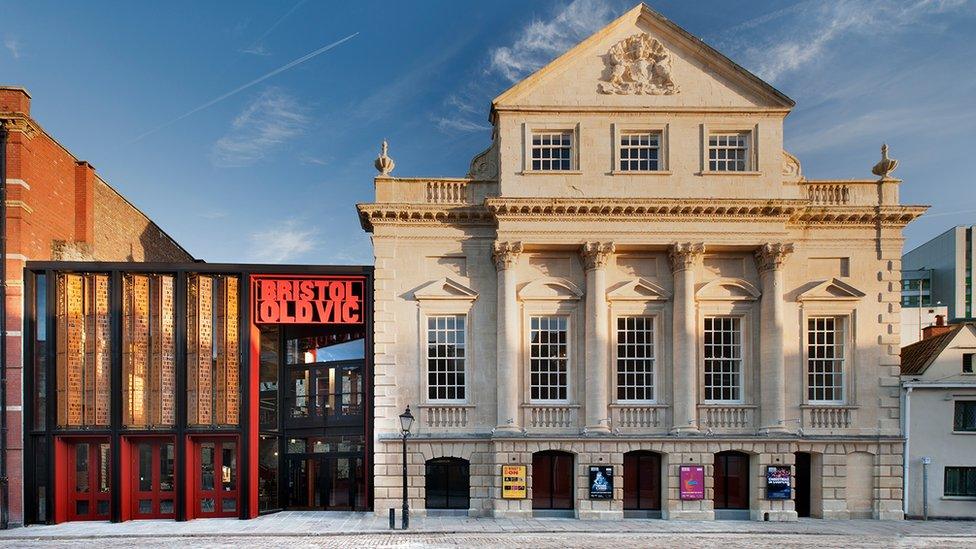
The Bristol Old Vic has undergone a number of refurbishments
The Bristol Old Vic added: "If it is indeed authentic, we will honour our policy and provide free tickets to the owner."
A spokesperson for the auction house said: "It is believed 20 of the coins have survived but only a handful of these have ever been offered up for auction.
"The vendors are from Bristol and have always treasured the item as an important piece of local history."
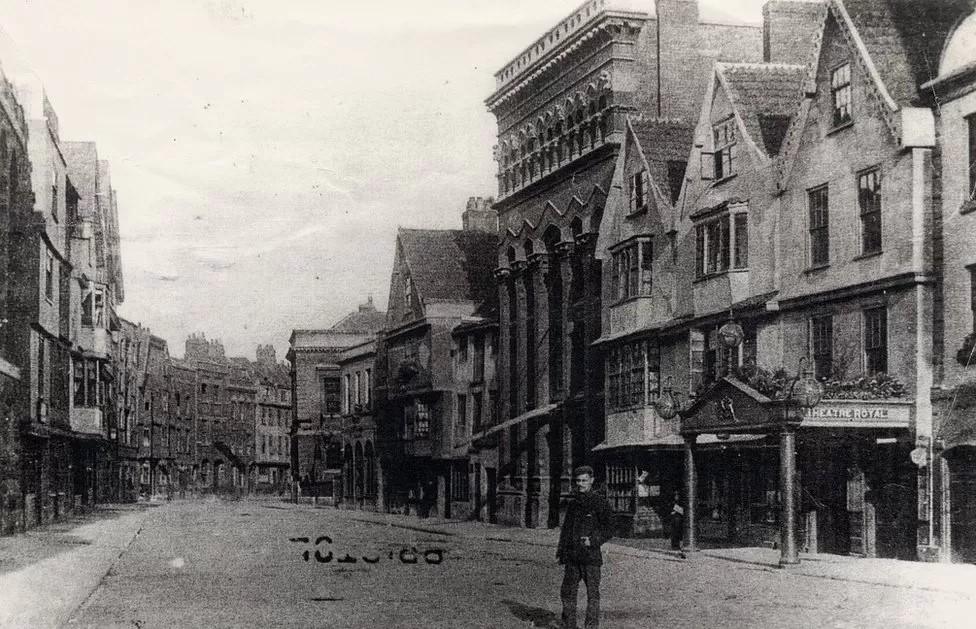
The theatre's old entrance is seen on the right, rebuilt in 1904
The Theatre Royal, as it was then known, was built on King Street between 1764 and 1766 and opened on 30 May that year.
There were 50 original shareholders, or proprietors, who each raised £50 - a substantial sum for the 18th Century - to fund the construction of the theatre and received one of the silver tokens in return.
The inscription on the token says: "The Proprietor of this Ticket is entitled to the sight of every performance to be exhibited in this house".
The reverse reads: "King Street, Bristol Theatre May 30, 1766."
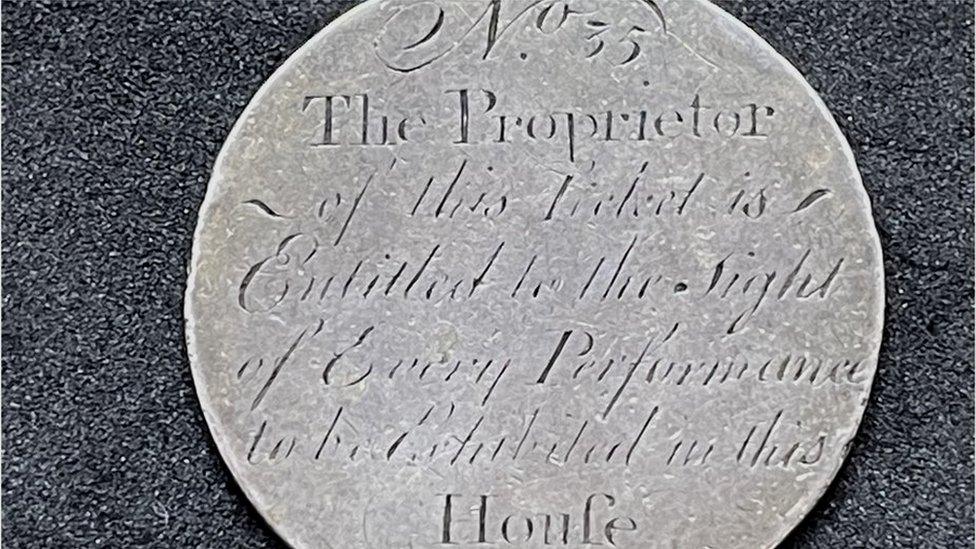
The silver token is still valid for free entry to every performance
Over the years, tickets were swapped, sold, lost, found and even forged, but extensive records at the University of Bristol Theatre Collection can help trace the origins of some of the coins.
There is a record of one ticket being offered up for £30 in 1791, meaning that the tickets themselves were a valuable commodity.
Ticket no. 35 was given to shareholder William Jones in 1766.
By 1815, the coin had found its way into the possession of John Wadham, a prominent Bristol Blue Glassmaker, records show.
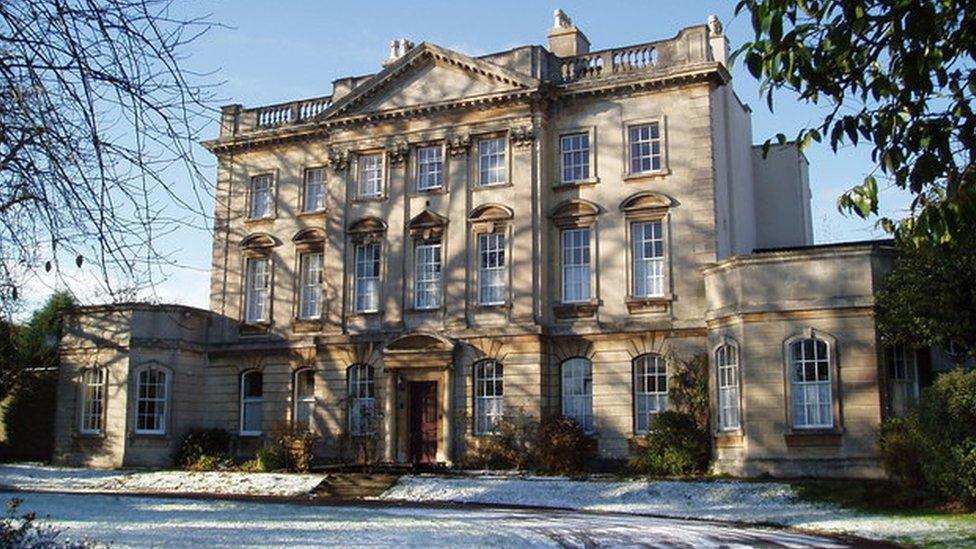
The Wadham family owned Frenchay Manor, which is now a nursing home
Mr Wadham was the owner of Frenchay Manor, which still stands, and a director of the Bristol Floating Harbour Company in 1820.
Ticket no. 35 was then passed down to Mr Wadham's son, Thomas, who became High Sheriff of Bristol in 1843 and established Winterbourne School.
Other prominent silver ticket owners were the Smyth family of Ashton Court, and the nearby Greville Smyth Park.

Follow BBC West on Facebook, external, X, external and Instagram, external. Send your story ideas to: bristol@bbc.co.uk, external
- Published13 April 2023
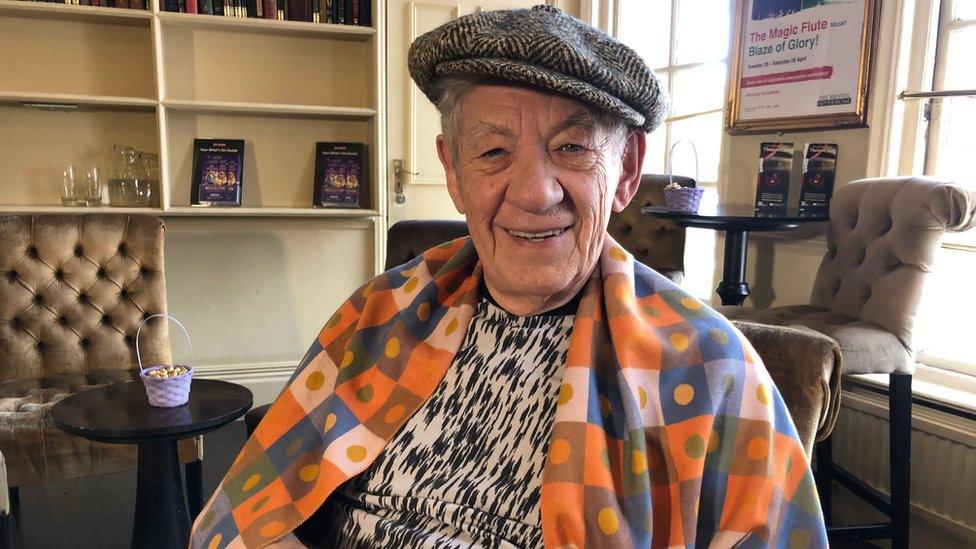
- Published28 April 2023
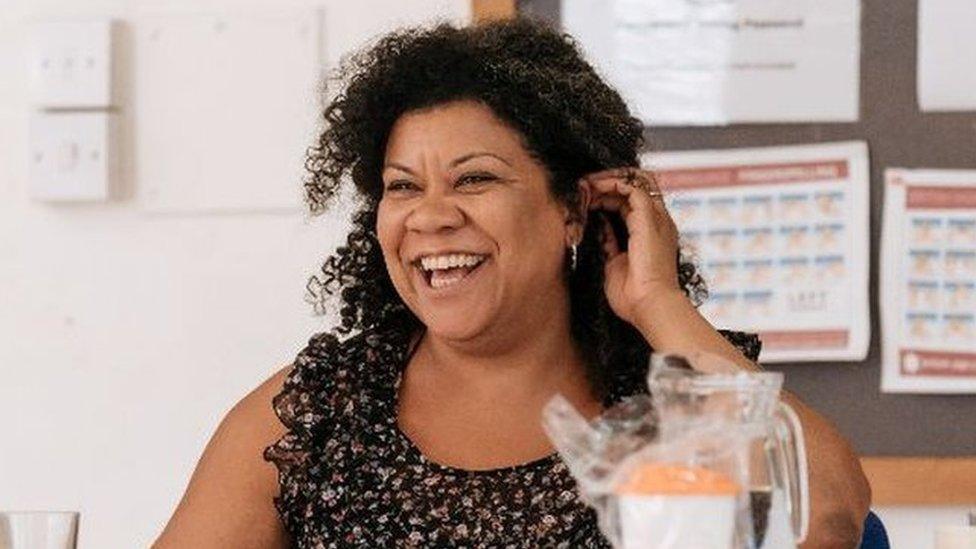
- Published30 January 2020
